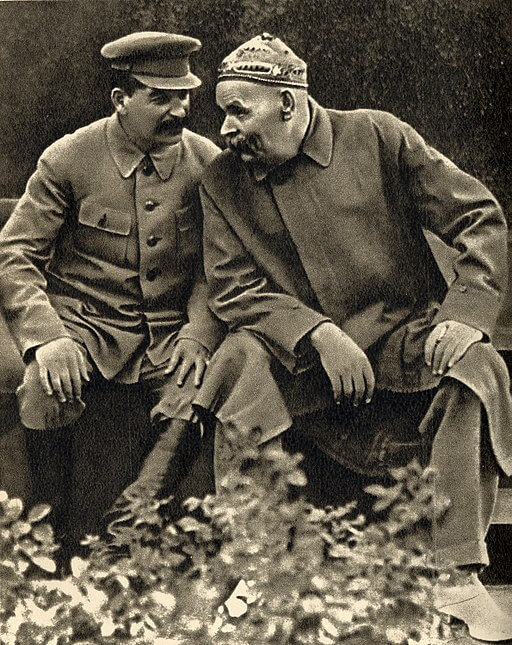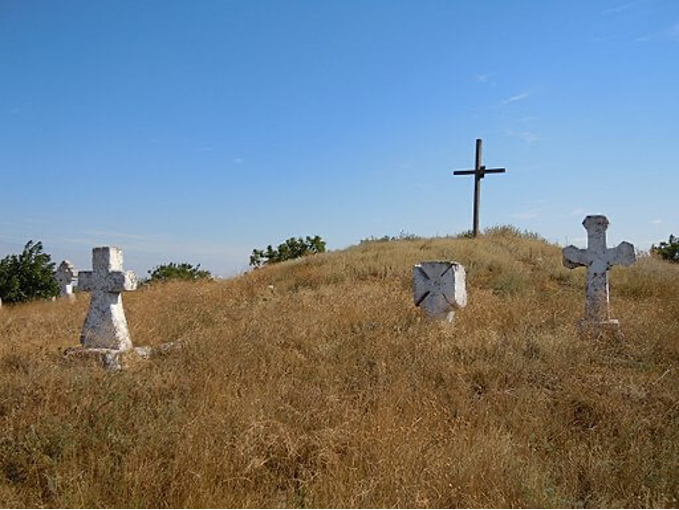by Maxim Gorky
The kings of steel, of petroleum, and all the other kings of the United States have always in a high degree excited my power of imagination. It seemed to me certain that these people who possess so much money could not be like other mortals.
Each of them (so I said to myself) must call his own, at least, three stomachs and a hundred and fifty teeth. I did not doubt that the millionaire ate without intermission, from six o’clock in the morning till midnight. It goes without saying, the most exquisite and sumptuous viands! Toward evening, then, he must be tired of the hard chewing, to such a degree that (so I pictured to myself) he gave orders to his servants to digest the meals that he had swallowed with satisfaction during the day. Completely limp, covered with sweat and almost suffocated, he had to be put to bed by his servants, in order that on the next morning at six o’clock he might be able to begin again his work of eating.
Nevertheless, it must be impossible for such a man — whatever pains he might take — to consume merely the half of the interest of his wealth.
To be sure, such a life is awful, but what is one to do? For what is one a millionaire — what am I saying? — a billionaire, if one cannot eat more than every other common mortal! I pictured to myself that this privileged being wore cloth-of-gold underclothing, shoes with gold nails, and instead of a hat a diadem of diamonds on his head. His clothes, made of the most expensive velvet, must be at least fifty feet long and fastened with three hundred gold buttons; and on holidays he must be compelled by dire necessity to put on over each other six pairs of costly trousers. Such a costume is certainly very uncomfortable. But, if one is rich like that, one can’t after all dress like all the world.
The pocket of a billionaire, I pictured to myself so big that therein easily a church or the whole senate could find room. The paunch of such a gentleman I conceived to myself like the hull of an ocean steamer, the length and breadth of which I was not able to think out. Of the bulk, too, of a billionaire I could never give myself a clear idea; but I supposed that the coverlet under which he sleeps measures a dozen hundred square yards. If he chews tobacco, it was unquestionably only the best kind, of which he always sticks two pounds at a time into his mouth. And on taking snuff (I thought to myself) he must use up a pound at a pinch. Indeed, money will be spent!
His fingers must possess the magic power of lengthening at will. In spirit, I saw a New York billionaire as he stretched out his hand across Bering Strait and brought back a dollar that had rolled somewhere toward Siberia, without especially exerting himself thereby.
Curiously, I could form to myself no clear conception of the head of this monster. In this organism consisting of gigantic muscles and bones that is made for squeezing money out of all things, a head seemed to me really quite superfluous.
Who, now, can conceive my astonishment when, standing facing one of these fabulous beings, I arrived at the conviction that a billionaire is a human being like all the rest!
I saw there comfortably reclining in an armchair a long, wizened old man, who held his brown, sinewy hands folded across a body of quite ordinary dimensions. The flabby skin of his face was carefully shaved. The underlip, which hung loosely down, covered solidly built jaws, in which gilded teeth were stuck. The upper lip, smooth, narrow and pallid, scarcely moved when the old man spoke. Colorless eyes without brows, a perfectly bald skull. It might be thought that a little skin was wanting to this reddish face, to this countenance that was expressionless and puckered like that of one new-born. Was this being just beginning its life, or was it already nearing its end?
Nothing in his dress distinguished him from the ordinary mortal. A ring, a watch, and his teeth were all the gold he carried with him. Scarcely half a pound, all told! Taken altogether, the appearance of the man recalled that of an old servant of an aristocratic family in Europe.
The furnishing of the room in which he received me had nothing unusually luxurious about it. The furniture was solid; that is all that can be said. Oftentimes elephants probably come into this house, I involuntarily thought at the sight of the heavy, substantial pieces of furniture.
‘Are you the billionaire?’ I asked, since I could not trust my eyes.
‘Yes, indeed,’ he answered, nodding convincingly with his head.
‘How much meat can you consume for breakfast?’
‘I eat no meat in the morning,’ he avowed. ‘A quarter of an orange, an egg, a small cup of tea, that’s all . . .’
His innocent child’s-eyes blinked with a feeble luster, like two drops of muddy water.
‘Good,’ I began again, half disconcerted. ‘But be honest with me; tell me the truth. How often in the day do you eat?’
‘Twice,’ he answered, peacefully. ‘Breakfast and dinner suffice me. At noon I take soup, a little white meat, vegetables, fruit, a cup of coffee, a cigar . . .’
My surprise grew apace. I drew breath, and went on:
‘But, if that’s true, what do you do with your money?’
‘Make more money!’
‘What for?’
‘To make more money out of that!’
‘What for?’ I repeated.
He leaned toward me, his hands supported by the arms of his chair, and with some curiosity in his expression he said:
‘You are probably cracked?’
‘And you?’ I said . . .
The old man inclined his head, and, whistling softly through the gold of his teeth, he said:
‘Droll wag! . . . You are the first human being of your species that I ever became acquainted with.’
Then he bent his head back and looked at me some time, silently and scrutinizingly.
‘What do you do?’ I began again.
‘Make money,’ he answered, shortly.
‘Oh, you’re a counterfeiter!’ I exclaimed, joyfully, for I thought I had finally got to the bottom of the mystery. But the billionaire flew into a passion. His whole body shook, his eyes rolled actively.
‘That is unheard of!’ he said, when he had calmed down. Then he inflated his cheeks, I don’t know why.
I considered, and put further the following question to him:
‘How do you make money?’
‘Oh, that’s very simple. I possess railroads; the farmers produce useful commodities, which I transport to the markets. I calculate exactly to myself how much money I must leave the farmer, in order that he may not starve and be able to produce further. The rest I keep myself as transportation charges. That’s surely very simple!’
‘And are the farmers satisfied with it?’
‘Not all, I believe,’ he answered, with a naïve childishness. ‘But they say that the people are never satisfied. There are always odd characters who want still more . . .’
Translated from the German by Newell Dunbar.

